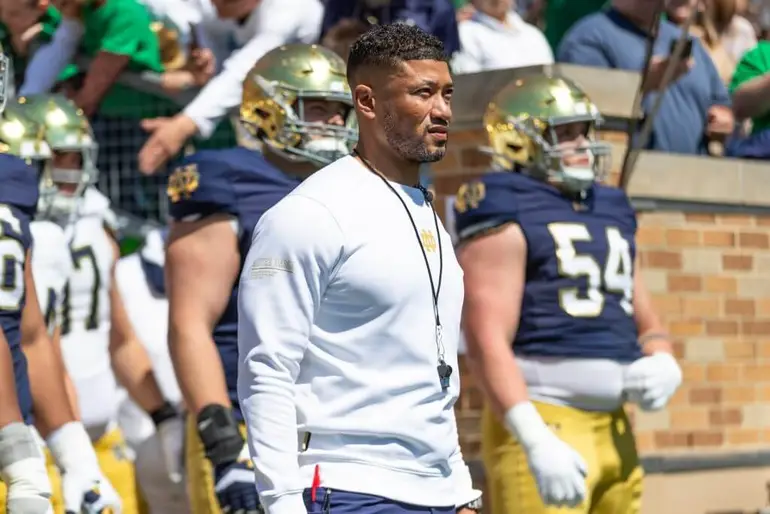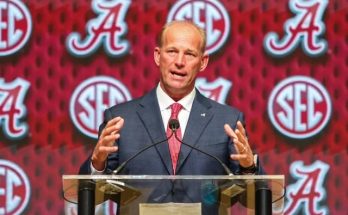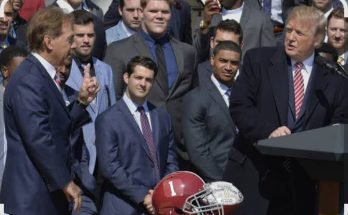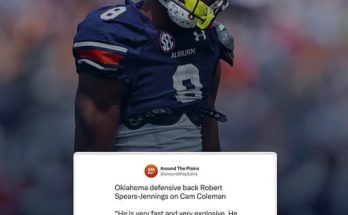When Marcus Freeman took over as head coach of Notre Dame football, the excitement was palpable. Freeman, a former linebacker at Ohio State and an accomplished defensive coordinator at Notre Dame, was seen as the perfect blend of youthful energy, strategic acumen, and cultural fit to lead one of college football’s most storied programs into the future. Yet, with great expectations come great challenges. The question on everyone’s mind is whether Notre Dame can take the next step under Freeman’s leadership — can the Fighting Irish go beyond solid seasons and contend consistently for national championships? And just as importantly, what has Marcus Freeman learned so far, and how will those lessons shape the road forward?
Taking over a high-profile program like Notre Dame is no small task. The Fighting Irish carry a rich history, a devoted fanbase, and the weight of tradition that can both inspire and constrain. Marcus Freeman inherited a team that was talented but inconsistent, filled with promise yet searching for identity and consistency. His early tenure has been marked by moments of brilliance and some hard lessons, but one thing is clear: Freeman is learning and evolving quickly.
One of the first lessons Freeman embraced was the importance of culture. Notre Dame’s identity has always been about more than just X’s and O’s; it’s about character, accountability, and a commitment to excellence on and off the field. Freeman has worked tirelessly to cultivate a culture where players buy into a shared vision — where each individual understands their role and the team’s goals. This cultural foundation is critical because talent alone is rarely enough to sustain success at the highest level. It’s the culture that fuels resilience in tough moments, drives preparation, and encourages growth.
In addition to culture, Freeman has learned that communication is a vital ingredient for success. His approach is personable and genuine, which resonates well with players. He’s not just a coach who issues commands but someone who listens and connects on a personal level. Building trust within the locker room is essential, especially in college football, where young athletes are balancing academics, personal growth, and the pressures of competition. Freeman’s ability to engage with his players, to understand their motivations and challenges, has been a key factor in fostering cohesion.
Of course, football is a results-driven business, and Freeman understands the pressure to win. One of the biggest lessons he’s learned is balancing the immediate demand for victories with the long-term development of the program. Turning Notre Dame into a perennial powerhouse doesn’t happen overnight. It requires patience, persistence, and strategic planning. Freeman has shown a willingness to stay the course, focusing on incremental improvements in recruiting, player development, and scheme implementation.
Recruiting, in particular, has been a major focus. Notre Dame competes on a national stage for elite talent, and Freeman has prioritized building relationships with recruits and their families early and often. He recognizes that recruiting isn’t just about selling the program’s prestige; it’s about creating an environment where young athletes see themselves thriving and growing. This personalized approach has started to pay dividends, with highly touted recruits showing strong interest in joining the Fighting Irish under Freeman’s leadership.
Strategically, Freeman’s defensive background has influenced how Notre Dame approaches games. His defenses have been aggressive, well-coached, and adaptable. However, he has also realized that offense cannot be an afterthought. To take the next step, Notre Dame must be balanced and explosive on both sides of the ball. Freeman has been collaborating closely with his offensive staff to develop a dynamic offense that can capitalize on the defense’s efforts and keep opponents off balance. This balance will be essential in big games against top-tier competition.
Freeman has also learned the importance of handling adversity with grace. Every program faces setbacks — tough losses, injuries, or off-field distractions. How a team responds to adversity often defines its trajectory. Freeman has emphasized resilience and mental toughness, encouraging his players to learn from mistakes and maintain focus on their goals. This mindset shift is vital for Notre Dame to break through past obstacles and reach the upper echelon of college football.
Another crucial lesson Marcus Freeman has taken to heart is the value of community and tradition. Notre Dame is unlike any other program in college football because of its global fanbase and deep-rooted traditions. Freeman understands that leading the Fighting Irish means respecting this legacy while also making the program his own. He has embraced the university’s values and has been visible in engaging with alumni, fans, and the broader community. This connection builds a sense of shared purpose that motivates everyone involved with the program.
Looking ahead, the road forward for Notre Dame under Marcus Freeman is filled with promise but not without challenges. The college football landscape is evolving rapidly, with changes in NIL (Name, Image, Likeness) policies, transfer portal dynamics, and playoff structures adding complexity. Freeman has shown a willingness to adapt and innovate in this environment, ensuring Notre Dame stays competitive not just on the field but also in how it manages modern college athletics.
Recruiting will remain a top priority, as will developing the depth and versatility necessary to sustain success over a grueling season. Freeman will need to continue fostering a culture where accountability and growth are central themes, encouraging his players to rise to their potential both as athletes and individuals. The staff’s ability to recruit, develop, and scheme effectively on offense and defense will be critical in bridging the gap from contender to champion.
Freeman’s leadership style, marked by empathy, communication, and vision, positions him well to guide Notre Dame through this next chapter. He has demonstrated that he can connect with players, inspire confidence, and build a team that fights through adversity. As the Fighting Irish aim for consistent national relevance and, ultimately, a championship, these qualities will be tested — and hopefully strengthened — by every challenge that comes their way.
The question “Can Notre Dame take the next step?” is one that will be answered over time. The foundation Marcus Freeman has laid, built on lessons learned through early experiences, is solid and thoughtful. With the right mix of talent, culture, strategy, and leadership, Notre Dame can certainly elevate its program to new heights. Fans and analysts alike will be watching closely as Freeman and the Fighting Irish continue their pursuit of greatness.
In conclusion, Marcus Freeman’s tenure at Notre Dame so far has been a journey of growth, learning, and promise. He understands the unique demands of leading such a historic program and has taken important steps to address those demands with integrity and vision. The next chapter for Notre Dame football is being written now, and Marcus Freeman’s lessons learned will be the compass guiding the team forward. The Fighting Irish have every reason to believe that their best days are still ahead.



